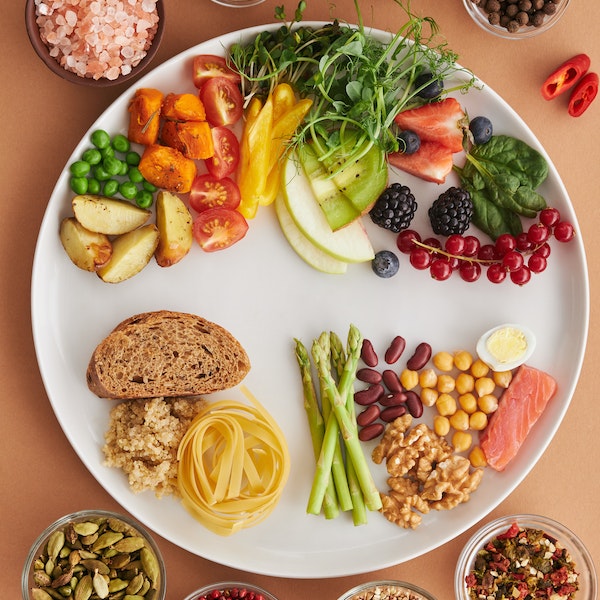Are you confused about what to eat and what to avoid when it comes to your diet?
You’re not alone! Nutrition is a complex field, and there are countless myths and misconceptions that can make it difficult to make healthy choices.
In this blog post, you will come to know about all the myths or misinformation you have heard for far about nutrient eating. Here are some insights on what truly matters for your diet. So, let’s uncover the truth behind common nutrition myths and facts.

All calories are created equal
One of the most continued myths is that all calories are the same, regardless of their source, but in reality, the source of your calories matters.
The fact regarding this misconception is that the quality of your calories matters more than the quantity. Nutrient-dense foods like fruits, vegetables, and lean proteins provide essential vitamins and minerals, while sugary, processed foods can lead to weight gain and health issues.
For example, 100 calories of broccoli will have vastly different effects on your body compared to 100 calories of soda.
Carbs are the enemy
Carbohydrates are often considered harmful to our health, and many people believe that cutting them out is the key to weight loss and health.
However, carbohydrates are an essential source of energy for our bodies. You should take healthy or complex carbohydrates like whole grains, vegetables, and legumes over simple carbs found in sugary snacks and white bread.

Fat-free is healthier
The fat-free craze of the past led many people to believe that eliminating fat from their diet was the way to go. This myth is followed by many even now.
As a matter of fact, healthy fats, such as those found in avocados, nuts, and olive oil, are essential for various bodily functions. They can even help with weight management when consumed in moderation.
You should skip breakfast to lose weight
It is a big lie that skipping breakfast can help in weight loss and reduce our calorie intake.
The truth is, breakfast is the most important meal of the day. Eating a nutritious breakfast can help control appetite and prevent overeating later in the day. It also provides essential nutrients to kickstart your metabolism.

You need to detox your body regularly
Detox diets and cleansers claim to rid your body of toxins, but do they really work? The answer to this is no.
Your body has its own built-in detoxification systems, primarily the liver and kidneys. There’s little scientific evidence to support the need for detox diets. You can rely on your natural detox processes by eating a balanced diet with plenty of water.
Supplements are always beneficial
Supplements are often marketed as the magic solution to all your health problems. But they are not the only solution for your health issues.
It is true that supplements can be beneficial in certain situations, but they are not a replacement for a balanced diet. Some supplements can be harmful when taken in excess.

You must eat every 2-3 hours
The idea that you need to eat small, frequent meals to boost metabolism and immunity and control hunger has gained popularity. However, it does not work for everyone.
The fact is that the frequency of your meals doesn’t significantly impact your metabolism. What matters more is the overall quality and quantity of the food you consume throughout the day.
Gluten-free is healthier for everyone
The gluten-free trend has exploded in recent years due to many believing that it’s a healthier choice for everyone.
Mostly a gluten-free diet is necessary for those with celiac disease or gluten sensitivity. However, for most people, gluten-containing foods like whole grains can be part of a healthy diet.
Takeaway
Nowadays, a lot of nutrition myths have been created, so it’s important to separate fact from fiction.
The truth is that a balanced diet, rich in whole foods and nutrients, is the cornerstone of good health. Don’t be swayed by fad diets or the latest trends; focus on making sustainable, healthy choices for the long term.
Remember that nutrition is not one-size-fits-all. So, you should consult a registered dietitian or healthcare professional for personalized guidance on your dietary needs.
FAQs
Is it okay to have a cheat day on a healthy diet?
Yes, occasional indulgences are fine as long as they don’t become a regular habit. Enjoying treats in moderation can help you stick to a healthy eating plan in the long run.
What’s the recommended daily water intake?
The general guideline is to drink about 8 cups of water a day, but it depends on factors like age, activity level, and climate. Adjust your water intake according to your body’s capacity.
Are organic foods always better than conventional ones?
Organic foods can be a good choice, as they often have fewer pesticide residues. You should include plenty of fruits and vegetables in your diet, whether they’re organic or not. Wash produce thoroughly to reduce pesticide exposure.
Is intermittent fasting a good way to lose weight?
Intermittent fasting can be a fast weight-loss strategy for some people, but it’s not suitable for everyone. You should consult your doctor before starting any fasting routine to ensure it’s safe for you.
Which foods can boost metabolism?
Certain foods like green tea, spicy peppers, and protein-rich foods may have a modest effect on metabolism. However, the impact is usually minimal, and long-term weight management depends more on overall diet and physical activity.


